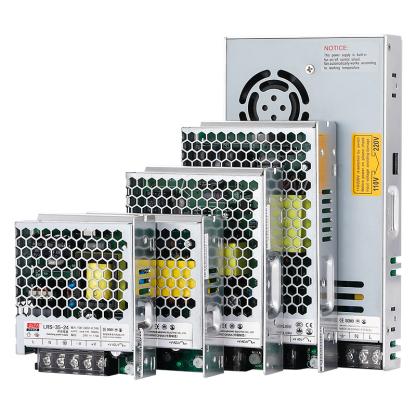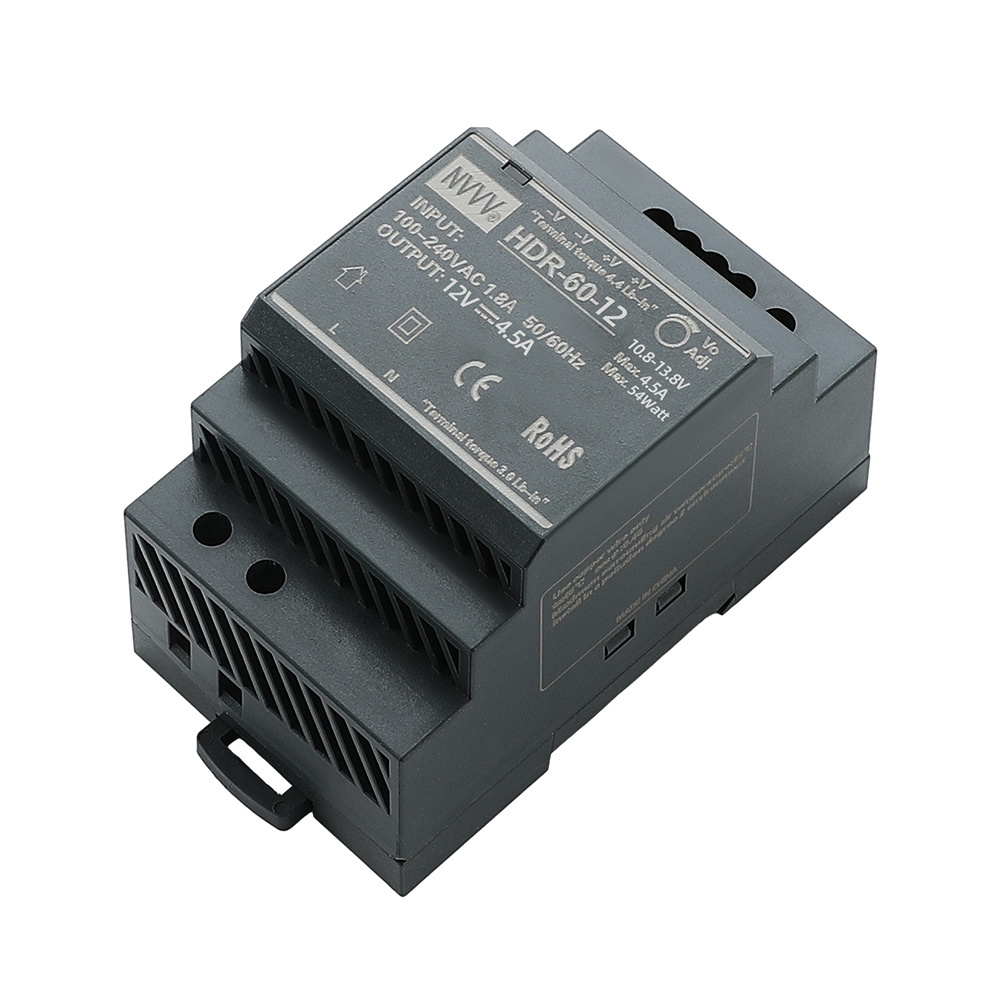So what exactly is a 12V power supply?
In modern life, 12V power supply plays an important role. This article mainly focuses on three parts: What is a 12V power supply, Why use a 12V power supply, and Can a 12V power supply be used as a battery charger. I hope you can understand 12V power supply better.
What is a 12V power supply?
A 12V power supply is an electrical device that provides a constant voltage of 12 volts to power various electronic devices and systems. Here are some key points about 12V power supplies:
Voltage Specification: It outputs a consistent 12 volts of direct current (DC), which is a common requirement for many electronic devices such as LED lights, computers, automotive accessories, and other low-power electronics.
Types:
Linear Power Supplies: These are simpler, but less efficient, as they use transformers and regulators to convert AC to DC.
Switching Power Supplies (SMPS): These are more efficient and compact. They use high-frequency switching regulators to convert AC to DC.
Applications:
Automotive: Many automotive systems and accessories are designed to operate on 12V DC, as this is the standard voltage for car batteries.
Electronics: Used to power various household electronics, including routers, modems, and security cameras.
LED Lighting: Frequently used for LED strips and other lighting solutions that require a stable 12V input.
Industrial Equipment: Powers various industrial and control systems that operate at 12V.
Form Factors:
Wall Adapters: Plug into a standard AC outlet and convert the voltage to 12V DC.
Bench Power Supplies: Used in laboratories and workshops for testing and development.
Battery Packs: Portable 12V power sources, often used in remote or mobile applications.
Safety Features: Quality 12V power supplies include protection mechanisms such as overvoltage protection, overcurrent protection, and short-circuit protection to prevent damage to connected devices.
A 12V power supply is essential for ensuring that devices receive a stable and reliable power source, which is crucial for their proper operation and longevity.
Why use a 12V power supply?
Using a 12 volt power supply has several advantages and applications that make it a popular choice for powering various electronic devices and systems. Here are some reasons to use a 12V power supply:
Standard Voltage:
Many electronic devices are designed to operate at 12V, making it a standard voltage for compatibility. This includes a wide range of consumer electronics, automotive accessories, and industrial equipment.
Availability:
12V power supplies are widely available and come in various forms, such as wall adapters, bench power supplies, and battery packs, making them easy to obtain and use.
Efficiency:
Switching power supplies (SMPS) that output 12V are typically more efficient than linear power supplies, providing stable power with minimal energy loss.
Versatility:
A 12V power supply can be used in a broad range of applications, from powering LED lights and security cameras to running computer peripherals and automotive electronics.
Safety:
Operating at 12V DC is generally safer compared to higher voltages, reducing the risk of electric shock and making it suitable for consumer products and DIY projects.
Battery Compatibility:
12V is a common voltage for rechargeable batteries, such as those used in cars, boats, and renewable energy systems, allowing for seamless integration with battery-powered setups.
Cost-Effectiveness:
Due to their popularity and widespread use, 12V power supplies are often cost-effective, providing a budget-friendly solution for powering various devices.
Stability:
Quality 12V power supplies offer stable voltage output, which is crucial for the proper operation and longevity of sensitive electronic components.
Adaptability:
Many power supplies come with adjustable output voltages or multiple output options, allowing for flexibility in different applications and environments.
Overall, a 12V power supply is a practical and reliable choice for powering a wide range of devices, offering compatibility, efficiency, safety, and cost-effectiveness.
Can a 12V power supply be used as a battery charger?
A 12-volt power supply can be used as a battery charger, but it must be designed or modified to include specific charging features to ensure safety and effectiveness. Here are some important considerations:
Voltage Regulation:
The power supply must provide a stable and precise 12V output, as fluctuations can harm the battery or reduce its lifespan.
Current Limiting:
A proper battery charger needs to control the charging current to avoid overcharging and overheating the battery. This is particularly important for batteries like lead-acid or lithium-ion, which can be damaged if charged too quickly.
Charging Algorithm:
Different types of batteries require different charging algorithms. For example, lead-acid batteries typically use a three-stage charging process (bulk, absorption, and float), while lithium-ion batteries need constant current/constant voltage (CC/CV) charging.
Safety Features:
Overvoltage, overcurrent, short-circuit, and reverse polarity protection are crucial to prevent damage to the battery and ensure safe operation.
Temperature Monitoring:
Some advanced battery chargers include temperature sensors to monitor the battery’s temperature during charging and adjust the charging current accordingly to prevent overheating.
Using a 12V Power Supply Directly
If you use a standard 12V power supply without any of the above features, it can charge a 12V battery to some extent, but it is not recommended for the following reasons:
Overcharging: Without proper regulation, the battery may become overcharged, leading to reduced battery life or potential safety hazards.
Undercharging: Conversely, if the power supply cannot provide enough current, the battery may not charge fully.
Lack of Maintenance Charging: Proper chargers often include a maintenance or trickle charge feature to keep the battery at full charge without overcharging.
Purpose-Built Battery Chargers
For safe and effective battery charging, it is best to use a purpose-built battery charger designed for the specific type of battery you are charging. These chargers include all necessary features and algorithms to ensure the battery is charged correctly and safely.
Modifying a 12V Power Supply
In some cases, you can modify a 12V power supply to include charging features. This might involve adding:
A current limiting circuit: To control the charging current.
A charging controller: To manage the charging stages and ensure proper voltage and current are applied.








